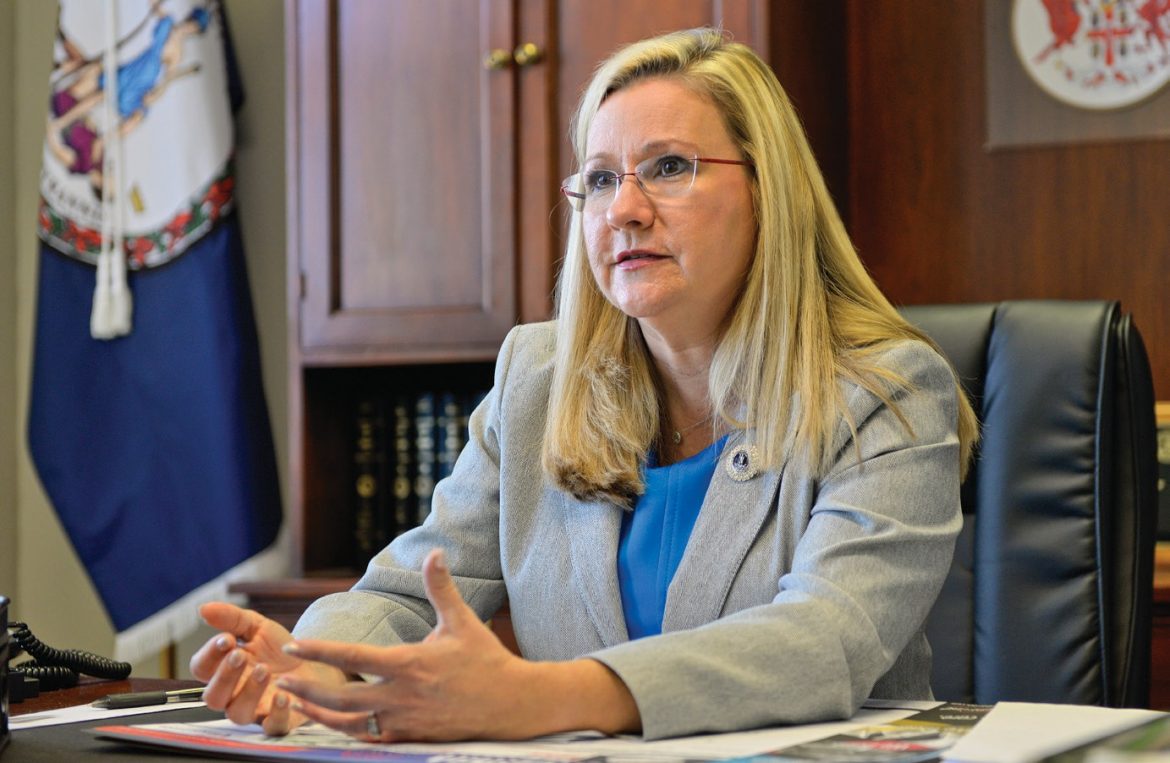Today, February 1, 2021 Virginia State Senator Amanda Chase filed a lawsuit in the US District Court for the Eastern District of Virginia objecting to the censure leveled against her on January 27, 2021. Specifically, she is seeking a ruling that the censure violated 42 USC § 1983 and the First and Fourteenth Amendments of the US Constitution. She asserts her First Amendment rights were violated by being censured for merely making statements that were politically unpopular. She seeks a declaratory judgment and an injunction preventing the censure from being imposed and wishes to have seniority in the Senate restored. The complaint is here and here is a link to Senate Resolution 91 censuring Senator Chase.
I previously wrote about the censure here.
There is an initial hurdle that Senator Chase must overcome and that is this case might be nonjusticiable because censure is the province of the Virginia State Senate and the courts should not interfere in this matter However, in Nixon v. United States, 506 U.S. 224 (1993), Justice Byron White and Justice David Souter, in separate concurring opinions, speculated that this rule is not universal and in certain cases judicial interference might be warranted.
The gravamen of the complaint, with which I agree, is that Senator Chase should not be censured for making unpopular statements like “I don’t do COVID.” This article of censure is particularly ridiculous: “Senator Chase used her social media page to recklessly identify the names and office contact information of colleagues, Democratic and Republican, whose legislation and votes she disagreed with.” This is public information and I would think those who sponsored bills would want to be identified. The fact the she summarized information which was already publicly available is hardly a matter for censure unless she was listing home addresses, places of work or private cell phone numbers.
With regard to the events at the US Capitol on January 6, 2021, in Brandenburg v. Ohio, 395 U.S. 444 (1969), the United States Supreme Court ruled that the government cannot punish inflammatory speech unless that speech is “directed to inciting or producing imminent lawless action and is likely to incite or produce such action” Senator Chase did not incite imminent lawless action. She didn’t ask for people to enter the U.S. Capitol and shouldn’t be held responsible for the actions of third parties over whom she had no control.
Lastly, there is the March 22, 2019 incident involving a Capitol Hill police officer. If the members of the Senate actually believed this was a matter for censure then why didn’t they censure Senator Chase back in 2019?
Censure is clearly authorized by Article IV, Section 7 of the Constitution of Virginia which provides that each house of the General Assembly may “punish [its members] for disorderly behavior.” This provision was obviously drafted to prevent members of the Senate from actively disrupting Senate proceedings and not punishing them for their general political views and statements.
Senator Chase is represented by attorney Tim Anderson of Virginia Beach.

